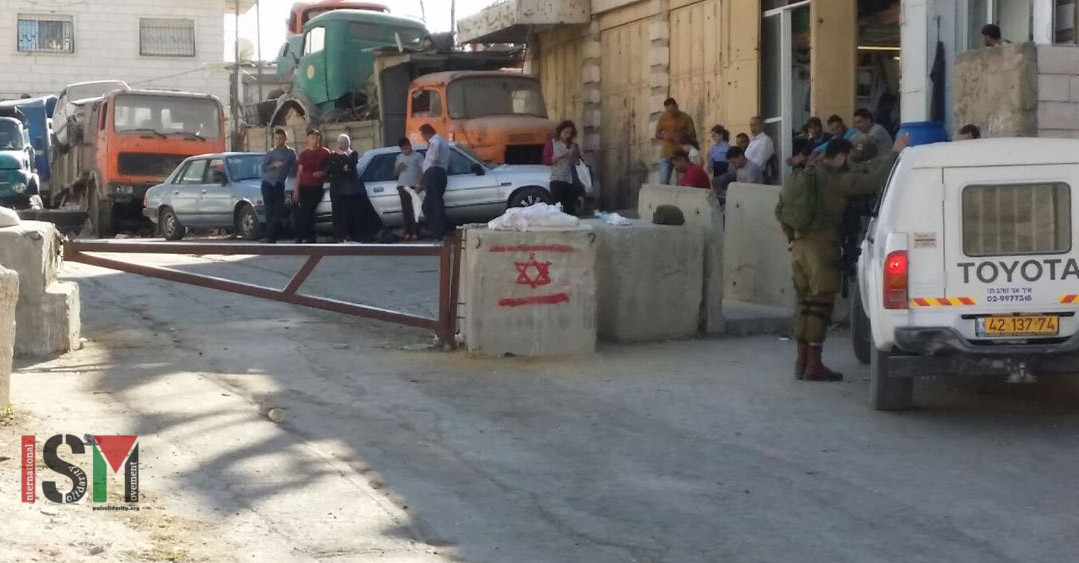Tag: International law
-
The slow creep of ethnic cleansing – closed military zone in Hebron
30th September 2016 | International Solidarity Movement, al-Khalil team | Hebron, occupied Palestine Israeli forces in occupied al-Khalil (Hebron) have further expanded the closed military zone (CMZ), now covering the whole Tel Rumeida neighborhood, while setting up new and enforcing existing checkpoints with increased restrictions. Parts of the Tel Rumeida neighborhood and the tiny strip of Shuhada…
-
Remembering Muhammad al-Durrah and the stolen dreams of Palestine
29th September 2016 | International Solidarity Movement, al-Khalil team | Gaza, occupied Palestine Mere days ago, on the 22nd of September, the city of occupied al-Khalil (Hebron) remembered and mourned the murder of 18 year old Hadeel al-Hashlamoun, another Palestinian youth executed in cold blood by Israeli forces outside the Shuhada Street checkpoint one year…
-
Reduced to a number – robbing Palestinians of their humanity
25th September 2016 | International Solidarity Movement, al-Khalil team | Hebron, occupied Palestine Palestinians in the closed military zone in occupied al-Khalil (Hebron) are reduced to a mere number. Imagine ‘loosing’ your identity to a foreign occupying army not only taking your land, but attempting to take your personality, your identity, your whole existence; reducing…


